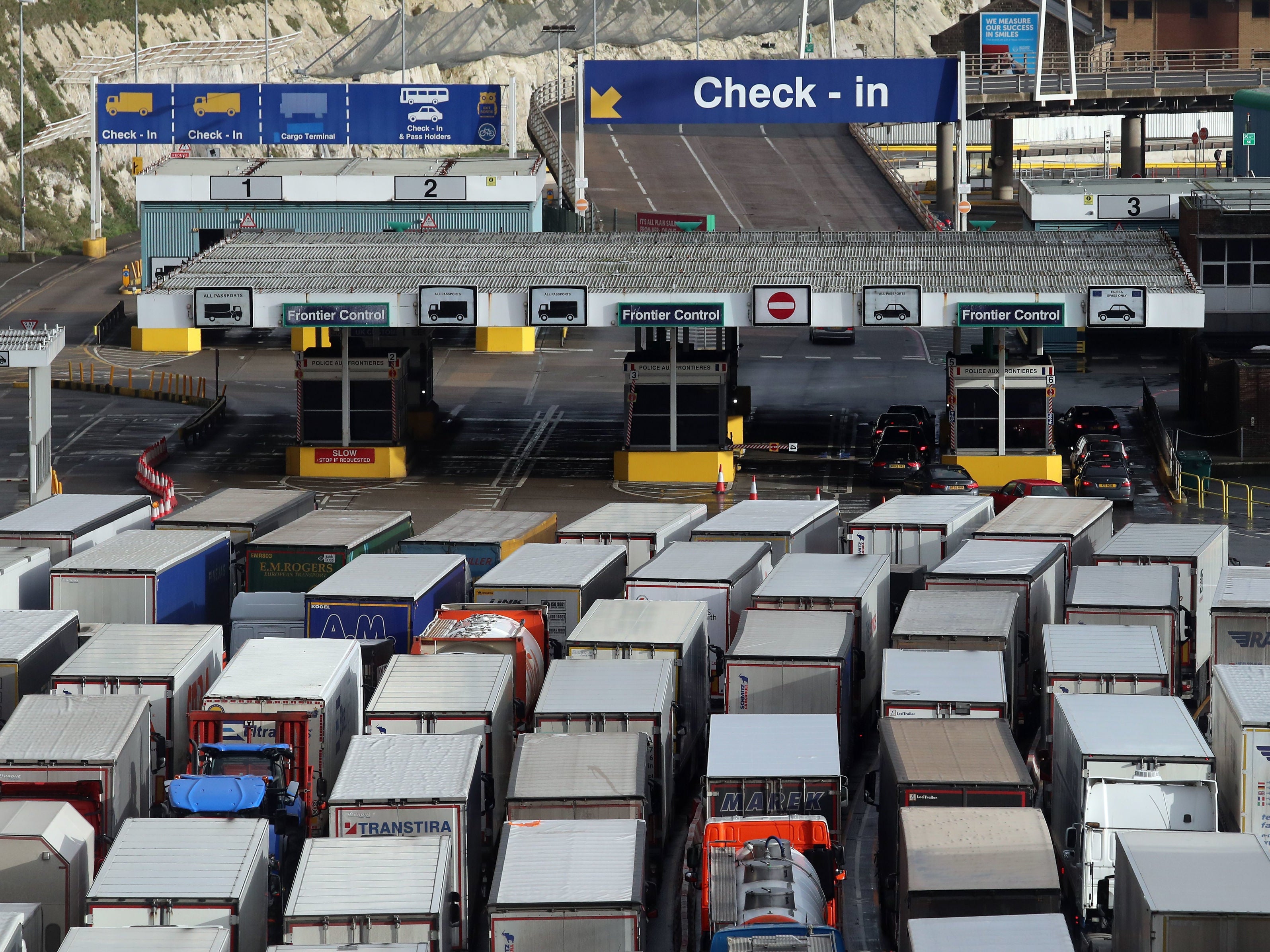Trade experts ridicule David Frost for denying his Brexit deal is responsible for exports crash
Author of agreement accused of ignoring ‘every reputable trade specialist and 100 years of trade theory’

Your support helps us to tell the story
From reproductive rights to climate change to Big Tech, The Independent is on the ground when the story is developing. Whether it's investigating the financials of Elon Musk's pro-Trump PAC or producing our latest documentary, 'The A Word', which shines a light on the American women fighting for reproductive rights, we know how important it is to parse out the facts from the messaging.
At such a critical moment in US history, we need reporters on the ground. Your donation allows us to keep sending journalists to speak to both sides of the story.
The Independent is trusted by Americans across the entire political spectrum. And unlike many other quality news outlets, we choose not to lock Americans out of our reporting and analysis with paywalls. We believe quality journalism should be available to everyone, paid for by those who can afford it.
Your support makes all the difference.Trade experts have ridiculed the minister who negotiated the Brexit deal, after he denied it was responsible for a devastating collapse in exports.
Goods sales to the EU plunged by 40.7 per cent in January – and imports slumped by 28.8 per cent – the largest declines since comparable records began in 1997.
Significantly, there were no similar falls in Britain’s trade with non-EU countries, apparently firm evidence that a mountain of new red tape since Brexit was completed is to blame.
But David Frost, picked by Boris Johnson to negotiate the Christmas Eve agreement, pointed to pre-Christmas “stockpiling” and “Covid lockdowns across Europe” as explanations for the slump.
“These effects are starting to unwind,” he argued, adding: “Freight volumes between the UK and the EU have been back to their normal levels for over a month now, i.e. since the start of February.”
Lord Frost, now the Brexit minister, also said: “Many businesses have made the changes needed to trade effectively with the EU, but we are focused on providing active and extensive support to others who need to adapt.”
But David Henig, director of the European Centre for International Political Economy, said such denial flew in the face of “pretty much every reputable trade specialist and 100 years of trade theory”.
Sam Lowe, senior research fellow at The Centre for European Reform think-tank, said: “I mean, it’s not particularly difficult to understand.
“If you put up large barriers to international trade, the expected result is trading becomes more expensive and difficult, and therefore there is less trade than if the barriers were not there.”
And Anton Spisak, a former Foreign Office policy adviser – pointing to an 83 per cent plunge in fish exports to the EU – taunted Lord Frost, saying “Somewhat difficult to stockpile fish, I think.”
Suren Thiru, head of economics at the British Chambers of Commerce, said the figures were “an ominous indication of the damage being done to post-Brexit trade with the EU”.
“The practical difficulties faced by businesses on the ground go well beyond just teething problems and, with disruption to UK-EU trade flows persisting, trade is likely to be a drag on UK economic growth in the first quarter of 2021.”
That view echoes the Office for Budget Responsibility, the Treasury watchdog, which forecast a £2.5bn hit to the UK economy – 0.5 per cent of GDP – in just three months.
But Lord Frost called for “caution when interpreting these statistics”, insisting: “This month’s unique combination of factors made it inevitable that we would see some unusual figures this January.”
Mr Henig warned the economic damage would continue, saying: “It will take some time for all of the goods and services trade effects of Brexit to become clear.
“But there is currently little reason to think that forecasts of the order of a 5 per cent hit to GDP over a few years are likely to be wrong.”





Join our commenting forum
Join thought-provoking conversations, follow other Independent readers and see their replies
Comments